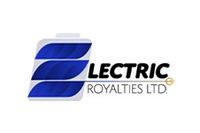Applied Materials Adds Cobalt to Chips for “Significant Materials Change”
Thanks to Applied Materials, cobalt has found a new home in mobile and server chips.
In recent months, most of the buzz about cobalt in the technology space has centered on how the metal will play into Tesla Motors’ (NASDAQ:TSLA) decision to build a $5-billion lithium-ion battery “gigafactory” in the Southwest United States.
Yesterday, however, Applied Materials (NASDAQ:AMAT), a company that provides equipment, services and software used for manufacturing semiconductors, made a splash of its own by debuting the Applied Endura® Volta™ CVD Cobalt system, which it says is “the only tool capable of encapsulating copper interconnects in logic chips beyond the 28nm node.”
A little background
Understanding just what that statement means requires a little background information. Fortunately, Don Clark, writing for The Wall Street Journal’s Digits, offers a good explanation.
Clark notes that essentially Applied Materials has developed a way to fix “defects” that are creating difficulties for chip manufacturers. The main issue is that as those manufacturers decrease the size of transistors, which “act as tiny switches on the chips,” the copper wires that connect the transistors malfunction. Specifically, “[l]ike a large volume of water forced into a smaller streambed, current moves faster and causes impacts akin to the rocks or boulders moved by a rushing torrent.” In the process, copper atoms are sometimes shaken loose, with chips ceasing to work as a result.
The solution
One solution, of course, would be to stop decreasing the size of transistors. However, Dr. Randhir Thakur, executive vice president and general manager of the Silicon Systems Group at Applied Materials, yesterday cited Moore’s Law as a reason it’s unrealistic to expect that to happen. Created by Intel (NASDAQ:INTC) co-founder Gordon Moore, the law states that the number of transistors on a chip will double about every two years.
Luckily, Applied Materials has come up with another answer to the problem: envelop the copper wires in cobalt. Interestingly, as EE Times’ R. Colin Johnson explains, that’s not a new idea; in fact, “other barrier materials have been proposed” in the past. What makes Applied Materials’ approach unique is the process it has developed to apply the cobalt.
That process is comprised of two steps that together make up the Endura® Volta™ CVD system. The first involves depositing a “thin, conformal CVD cobalt liner to increase the gap fill window of copper in narrow interconnects,” while the company describes the second as a “cobalt capping step” that completes the encasement of the copper wires.
The result, Applied Materials states, is more than an 80-fold improvement in chip reliability. However, beyond that, the inclusion of cobalt in chips is significant because it’s quite rare for the materials used to create them to be changed. Indeed, according to Applied Materials, ”[t]he introduction of cobalt as a superior metal encapsulation film marks the most significant materials change to the interconnect in over 15 years.”
Moving forward
Often the excitement of new technological developments is tempered by uncertainty regarding commercial viability, but Applied Materials has made some progress in that department — Clark notes that the company has already sent 75 Endura® Volta™ CVD units out to customers for testing. That said, there’s no guarantee the process will be taken up. “The machines aren’t likely to be introduced in large volumes until manufacturers are ready … to create smaller transistors,” according to Clark.
For now, Applied Materials is happy just to see them gain some traction. “It is deeply satisfying that these materials and process innovations in development for almost a decade are now being adopted by our customers for their high-performance mobile and server chips,” Dr. Sundar Ramamurthy, vice president and general manager of Metal Deposition Products at the company, is quoted as saying in the company’s press release.
Securities Disclosure: I, Charlotte McLeod, hold no direct investment interest in any company mentioned in this article.
Related reading:
Powering the Future: 3 Cobalt Juniors Explain the Impact of Tesla’s Gigafactory


